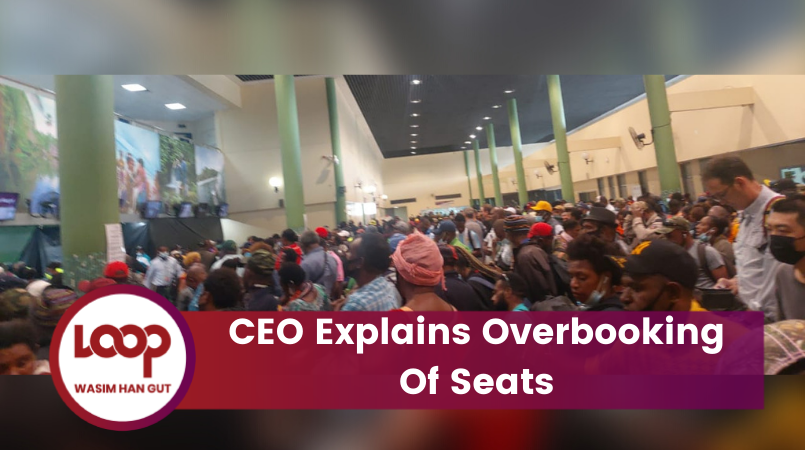
Airlines around the world do some degree of overbooking.
Air Niugini Chief Executive Officer, Bruce Alabaster, explained that airlines do this to ensure that they have no empty seats at takeoff, or to cover for the ‘no-show factor’.
Alabaster’s explanation follows questions by passengers who tried to understand why they would get upgraded on certain flights while get bumped off a flight in the next destination.
“If we take a route, and if we know that about 5 percent of passengers don’t come to the airport, we will overbook by 2 to 4 percent,” he stated.
“But don’t forget that 2 or 3 percent, or 4 percent, come straight off the cost of the airfare.
“So if we can cover that by ensuring that the flight goes out full, then that leads to cheaper airfares for Papua New Guineans.”
Furthermore, the International Air Transport Association, of which Air Niugini is a member, has argued that airlines should be allowed to continue the long-established practice of overbooking.
“The airline business is unique in that once a flight takes off, the seats on that flight are no longer available for sale; it’s a time-sensitive, perishable product,” said IATA.
“In addition, some passengers travelling on flexible tickets may not cancel their reservation before a flight, resulting in a no show passenger. Other passengers cancel their reservations too late for the airline to re-sell their seats again.
“Through sophisticated revenue management systems that airlines deploy, they know the historical percentage of no-show passengers for any given route. As a result, airlines can, with a degree of certainty, overbook a flight considering the number of no-shows expected, thereby maximising the capacity available to customers.”
